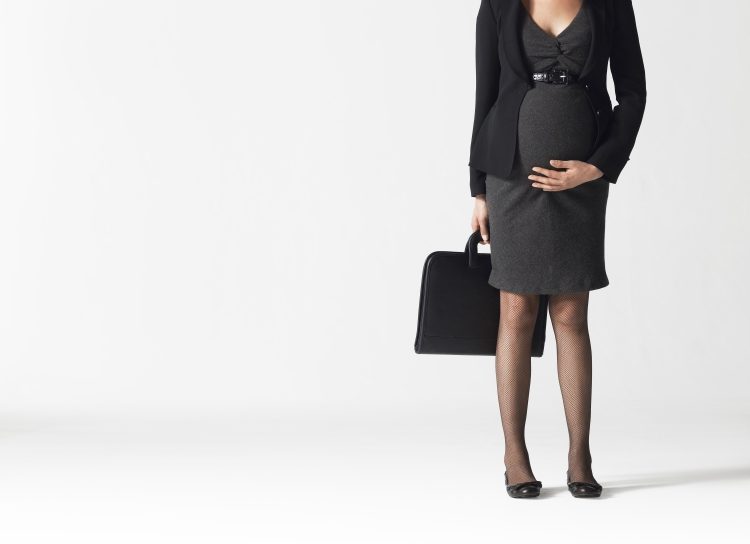In 1998, Carrie Cofer quit her job at a Vancouver-based heavy equipment supplier to have a child. It took a former co-worker’s urging to get her back to work. She did so, but only after negotiating for a space to breast-feed that was neither a restroom nor her office.
People at the time still grappled with the idea of professional women and the responsibilities of family. Cofer, then a 28-year-old human resources employee, said her boss could barely handle the term “breast-feed” — though he agreed with her idea. When she had her second child, the company gave her six months of maternity leave.
Cofer’s experience was a rare success for an employee seeking flexibility and leave from work to meet a family need. According to the U.S. Department of Labor, 88 percent of American workers in the private sector don’t have access to paid family leave through their employer.
Though it was overshadowed on the campaign trail by other issues, namely crime and foreign policy, this year both U.S. presidential nominees proposed paid parental leave policies. President-elect Donald Trump proposed a paid, six-week minimum family leave.
A recent poll conducted by the National Partnership for Women and Families found 82 percent of respondents favored paid sick days and paid family and medical leave. It was a success among members of both major parties: 95 percent of Democrats were in favor, as were 70 percent of Republicans.
Family leave policies appear to be changing around the country. And the changes are reflected in local governments and companies.
Less than most
Policies vary state to state and company to company, but the United States as a whole has long been considered one of the stingiest countries for family leave. Among developed countries, the United States has virtually the only government that does not mandate paid family leave for its workers.
The Family Medical Leave Act, ratified under the Clinton administration in 1993, grants 12 weeks of unpaid leave for American workers during medical and family emergencies — including childbirth. The federal mandate applies to workers in companies with 50 or more employees.
Many states have passed their own leave laws, shoring up some aspects of FMLA or tweaking others. Washington, for example, has extended unpaid leave benefits to domestic partners. Other states have expanded or limited the sizes of businesses to which FMLA applies.
A few states do require employers to offer paid family leave: California, New Jersey, New York and Rhode Island. All the programs are funded through employee-paid payroll taxes and administered through disability programs. Legislators in Washington D.C., Connecticut, Massachusetts and Minnesota have paid leave bills in their upcoming sessions. The city of San Francisco mandated employers give their workers six weeks of fully paid parental leave.
Washington passed a law in 2007 that would have given new parents a paid leave of $250 a week for five weeks. The recession hit the next year, and questions arose over how to pay for the law, which was never implemented. There are rumblings that some legislators could try to revive the plan in 2017.
Critics of leave policies often pair FMLA’s 12 unpaid weeks with plans offered by other wealthy countries. Germany, Japan and Norway offer at least 10 paid weeks; Austria, Lithuania and Spain offer 15. Bulgaria offers a year of paid leave.
Benefits, incentives
Some companies are voluntarily expanding their leave policies to stay competitive.
A highly publicized arms race of employees benefits is underway among major employers. Netflix, Amazon, Ikea, American Express and others have announced paid family leave updates, offering between 20 weeks and a year of paid leave. Theirs are mostly attempts to attract top talent.
Veterinarians were once mostly men, but young women dominate the field today four-to-one. Vancouver-based pet care company Banfield Pet Hospital executives said in a recent interview that 85 percent of Banfield’s 16,000 employees are women. In 2014 and 2015 combined, 1,000 of its employees went on maternity leave, President Vincent Bradley said in a recent interview.
Granting parental leave “is not just a moral obligation, it’s a business imperative,” Bradley said.
The company currently offers five weeks of paid short-term disability leave and workers can add their paid time off to the mix. A new plan allowing for six to eight weeks of paid leave begins in 2017.
Not just for women
Research shows men today are still less likely to use as much paid leave as women, but they are more likely to go on leave than their fathers and grandfathers.
A 2013 study from Pew Research Center found that from 1965 to 2011, fathers spent five fewer hours at work per week, from 42 to 37 hours, and more hours with their child, from 2.5 to seven hours.
Ridgefield City Manager Steve Stuart became a father for the third time in mid-December. The child is his first daughter. He plans to take time off through a mix of FMLA and accrued paid time off.
“Our midwife, she looked at my wife and said ‘You’ve got one job and that’s to take care of that baby,’ ” said Stuart, who has been Ridgefield’s city manager since 2014. “Then she looked at me and said ‘And you have to take care of her.’ ”
To not offer leave risks creating resentful or overworked employees, who may either find a company with more suitable policies or become a stay-at-home parent. He said it’s not smart business to ask an employee to pick between work and family.
“The burden of losing a great employee is the advertising, hiring and training of a new employee. It’s much greater than providing a little flexibility for families. It’s the truth,” Stuart said. “I go through hiring processes here and they are much longer than 12 weeks to get someone hired, on board and doing good work.”
Pacific Power Group, a Vancouver company that sells heavy equipment like generators and diesel engines, is one company that is still male-dominated. The company this year introduced new policies for paternity leave. Cofer, who is now an executive at the company, said the decision came from the company’s desire to be “a more inclusive company.”
“I can tell you the family dynamic looks a lot different today and smart employers have picked up on that,” Cofer said.
Looking back at her 1998 experience with her previous employer — a company she still holds in high regard — she said it’s exciting how times have changed.
“It’s exciting to think about. I think we’ll continue to evolve policies that look to be more inclusive,” she said. “Those old definitions that we used are changing and as the family structure changes, the definition changes and the benefit plans will have to change to keep pace.”




